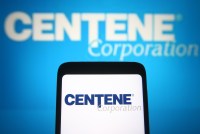Latest KFF Health News Stories
Mark Cuban Has Been Taking On the Drug Industry. But Which One?
The billionaire entrepreneur and NBA team owner is making waves with his new drug company. But his generics aren’t always the lowest-priced deal.
What the Health? From KFF Health News: The Kids Are Not OK
A new survey from the Centers for Disease Control and Prevention finds that teenagers, particularly girls, are reporting all-time high rates of violence and profound mental distress. Meanwhile, both sides in the abortion debate are anxiously waiting for a district court decision in Texas that could effectively revoke the FDA’s 22-year-old approval of the abortion pill mifepristone. Alice Miranda Ollstein of Politico, Sandhya Raman of CQ Roll Call, and Joanne Kenen of the Johns Hopkins Bloomberg School of Public Health and Politico join KHN’s chief Washington correspondent, Julie Rovner, to discuss these issues and more.
Venden opioides mezclados con tranquizilantes para animales en vecindario de Philadelphia
Los traficantes utilizan xilacina, un sedante barato no autorizado, para cortar el fentanilo, un opioide sintético 50 veces más potente que la heroína. El nombre callejero de la xilacina es “tranq”, y el fentanilo cortado con xilacina se llama “tranq dope”.
As Opioids Mixed With Animal Tranquilizers Arrive in Kensington, So Do Alarming Health Challenges
The veterinary tranquilizer xylazine, the choice du jour of local drug dealers to cut fentanyl, leads to necrotic ulcers and leaves street medics and physicians confused about how best to deal with this wave of the opioid crisis.
Armed With Hashtags, These Activists Made Insulin Prices a Presidential Talking Point
Twitter has been a hotbed for the burgeoning insulin access movement and activism surrounding other medical conditions. For people with diabetes, the platform has helped propel concern about insulin prices into policy. Can it continue to win with hashtags?
When Medicare stops paying for a pricey drug that prolongs life, an Ohio man considers giving up treatment to spare his family enormous debt.
Se acaba la era de las vacunas y las pruebas gratuitas contra covid. ¿Quién va a pagar?
Las personas podrán obtener estas vacunas a bajo costo o sin costo mientras duren los suministros del gobierno. Luego, dependerá de su seguro de salud.
Era of ‘Free’ Covid Vaccines, Test Kits, and Treatments Is Ending. Who Will Pay the Tab Now?
Insurers, employers, and taxpayers will all be affected as drug manufacturers move these products to the commercial market.
What the Health? From KFF Health News: A Health-Heavy State of the Union
President Joe Biden’s 2023 State of the Union address leaned heavily on health care issues. Biden took a victory lap for recent accomplishments like capping prescription drug costs for seniors on Medicare. He also urged Congress to make permanent the boosted premium subsidies under the Affordable Care Act, and he sparred with Republicans on threats to cut Social Security and Medicare. Also this week, both sides in the abortion debate are bracing for a court decision out of Texas that could, at least temporarily, make the abortion pill mifepristone illegal nationwide. Alice Miranda Ollstein of Politico, Rachel Cohrs of Stat, and Sarah Karlin-Smith of the Pink Sheet join KHN chief Washington correspondent Julie Rovner to discuss these issues and more. Also this week, Rovner interviews Kate Baicker of the University of Chicago about a possible middle ground in the effort to get universal health insurance coverage.
Centene Agrees to $215 Million Settlement With California for Alleged Medicaid Overbilling
The nation’s largest Medicaid insurer denies wrongdoing after the California attorney general’s office investigated it for inflating prescription drug costs.
‘We Ain’t Gonna Get It’: Why Bernie Sanders Says His ‘Medicare for All’ Dream Must Wait
As he takes the reins of the Senate Health, Education, Labor & Pensions Committee, the independent from Vermont and implacable champion of “Medicare for All” maps out his strategy for negotiating with Republicans — and Big Pharma.
The Pill Club Reaches $18.3 Million Medicaid Fraud Settlement With California
The online women’s pharmacy agreed to pay $15 million to the state Department of Justice and $3.3 million to the Department of Insurance over claims it overbilled Medi-Cal.
Decisions by CVS and Optum Panicked Thousands of Their Sickest Patients
Pharmacy closures by two of the biggest home infusion companies point to grave shortages and dangers for patients who require IV nutrition to survive.
Por un tecnicismo, niños necesitados podrían no tener acceso a vacunas contra el VRS
El virus respiratorio sincitial afecta a bebés de todas las clases sociales, pero tiende a perjudicar más a los hogares pobres y hacinados
A Technicality Could Keep RSV Shots From Kids in Need
The Vaccines for Children program, which buys more than half the pediatric vaccines in the U.S., may not cover the RSV shot for babies because it’s not technically a vaccine.
Some Addiction Treatment Centers Turn Big Profits by Scaling Back Care
Private equity groups are cashing in on rising rates of alcohol and drug addiction in the U.S. But they aren’t necessarily investing in centers with the best treatment standards, and they often cut extra services.
In Part II of this special two-part episode, Alice Miranda Ollstein of Politico, Sandhya Raman of CQ Roll Call, and Sarah Varney of KHN join KHN chief Washington correspondent Julie Rovner to discuss how the abortion debate has evolved since the Supreme Court overturned the nationwide right to abortion in 2022, and what might be the flashpoints for 2023. Also, for extra credit, the panelists recommend their most memorable reproductive health stories from the last year.
Montana Pharmacists May Get More Power to Prescribe
Supporters of a proposed law say it would fill a health provider gap in rural areas, while doctors worry it will give pharmacists power outside the scope of their education.
FDA Experts Are Still Puzzled Over Who Should Get Which Covid Shots and When
A single booster seems to prevent death and hospitalization in most people, but protection from the current vaccines wanes within months. FDA experts say they need to know more from the Centers for Disease Control and Prevention to decide the best long-term strategy.
What the Health? From KFF Health News: Part I: The State of the Abortion Debate 50 Years After ‘Roe’
In Part I of this special two-part episode, Alice Miranda Ollstein of Politico, Sandhya Raman of CQ Roll Call, and Sarah Varney of KHN join KHN chief Washington correspondent Julie Rovner to discuss how the abortion debate has evolved since the Supreme Court overturned the nationwide right to abortion in 2022, and what might be the flashpoints for 2023. Also in this episode, Rovner interviews Elizabeth Nash of the Guttmacher Institute, about changing reproductive policies in the states.




















